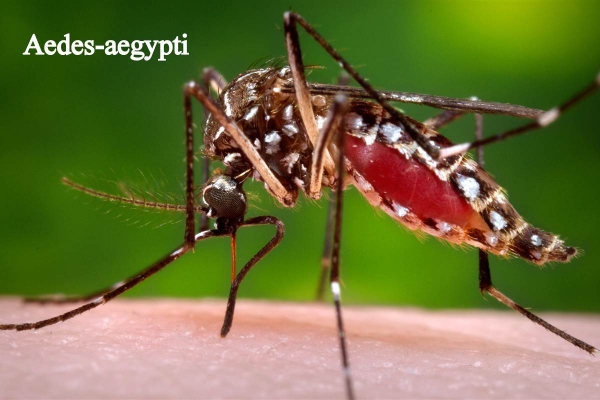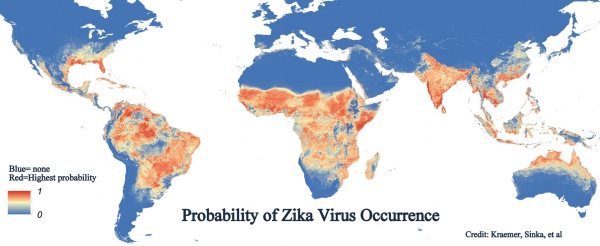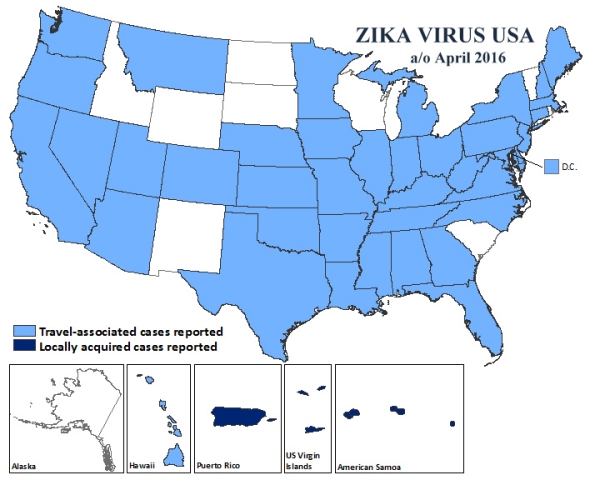FAQ: Any weird diseases in your travels?
/People are always interested in how we take care of medical problems when we're out of the USA, especially in third world countries and they frequently ask if we've contracted any “weird” diseases on our journey. The answers are … pretty easy and yes. Getting medical care in third world countries is not all that difficult. We've not been in the jungles of Borneo or in remote Antarctica with major illnesses, so we can't comment on those situations. In general, however, we've been able to obtain reasonable medical and dental care wherever we've been. From mammograms in six different countries to an ear infection in the Galapagos, a URI in Ecuador, emergency major surgery in Chile, a sore that wouldn't heal in Vanuatu, and a toothache in Ushuaia, Argentina at the bottom of the world … we've always found adequate care at a fraction of the cost the same treatment would have cost us in the USA.
Quite honestly, none of the medical problems we've experience in foreign countries would fall into the “weird” category. All the weird diseases have occurred in the USA! In Boston one year, I contracted Lyme Disease caused by a tick bite. Lyme Disease was easily recognized … a very noticeable bull's-eye rash on my arm. With the help of the internet, I self-diagnosed, but had to go to a local doc-in-the-box to get verification and an Rx.
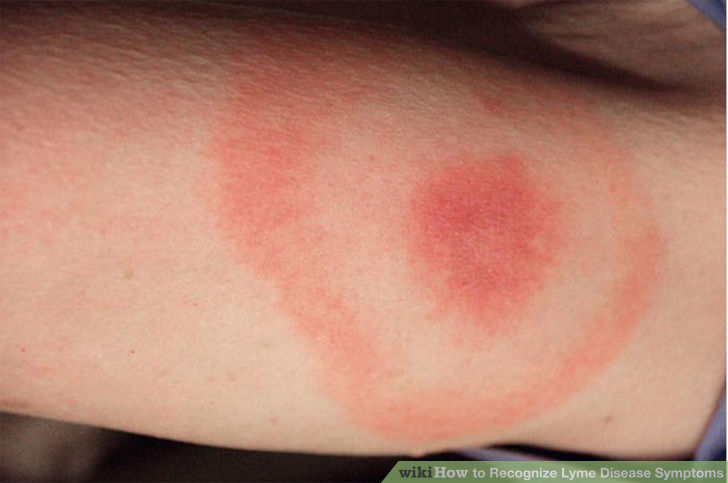
According to the CDC (Centers for Disease Control), there are “329,000 new cases [reported] each year in the US. Lyme disease is one of the fastest growing infectious diseases in the US and Western Europe. In September 2015, the CDC revised their estimates indicating ... an increase of up to 10 times what was previously believed.” I guess it wasn't that unusual to have Lyme Disease based on its current prevalence in the US, but it certainly seemed weird at the time.
A few years later in Las Vegas, I woke in the middle of the night and my head was spinning (no alcohol involved). I could barely walk and was so dizzy, I began vomiting. Even laying flat in bed and not moving kept my head spinning. Believe it or not, we found a “dizzy clinic” in Las Vegas (go figure!). I was diagnosed as having BPPV (Benign Paroxsymal Positional Vertigo) … who could have known? BPPV is caused by “calcium carbonate crystals (otoconia) that are normally embedded in gel in the utricle becoming dislodged and migrating into one or more of the three fluid-filled semicircular canals.” i.e. crystals floating around in the inner ear. They used the simple Epley maneuver on me and the symptoms disappeared quickly. Interestingly enough, while on a road trip in California a couple years later, David had the same symptoms. We reviewed the steps of the Epley maneuver on line, followed the procedure and David was fine within hours.

How prevalent is BPPV? Well, according to my internet research, an epidemiological study reports “Eighty percent of people aged 65 years and older have experienced dizziness, and BPPV, the most common vestibular disorder, is the cause of approximately 50% of dizziness in older people.” So I guess, David and I aren't alone, but it certainly was an unusual occurrence for us.
So, what's latest? A month or so ago when we were in Boston, David noticed a rash on his upper legs. It wasn't itchy and didn't really bother him and he thought it would go away. By the time we had been in Vegas for a week, it had worsened and spread further down his legs. We took a trip to Urgent Care where the on-call physician diagnosed “multiple non-venomous insect bites” and assured us that the rash would disappear in a couple of weeks. We disagreed with the diagnosis, but the doc knew best. Predictably, the rash worsened and spread further down his legs to his feet. We returned to Urgent Care where the on-call physician looked at it and said with a straight face “Geez … I have no idea what that is.” Another physician stopped in to take a look. “Wow … that's interesting. See a dermatologist.”
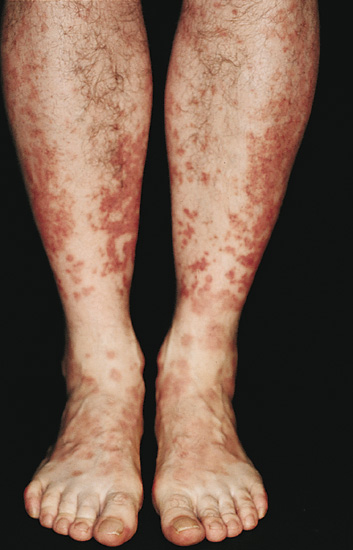
There are no life-threatening dermatological conditions which require an emergency same-day visit, but after many phone calls, we found a Board Certified Dermatologist on the west side of town that could fit David in immediately. He took one look at David's legs, smiled and said “Schamberg's Disease”, also known as progressive pigmentary dermatosis. The doc brought in a textbook with colored plates and showed David the photos that he could have posed for. There's not much known about Schamberg's. It's rare and the cause is unknown, though there's much speculation. It's benign, non-contagious, eventually goes away and there's not much to be done about it. It looks awful, so David has taken to wearing long pants all the time till the rash disappears – so as to not scare little children.
Just chock it up to another weird disease … in the USA.


